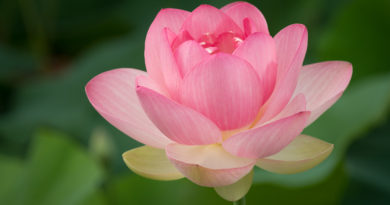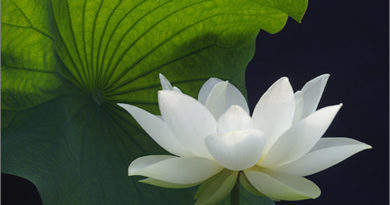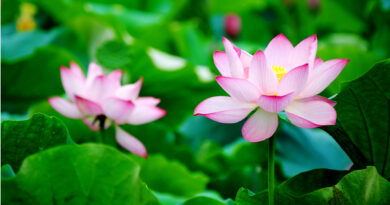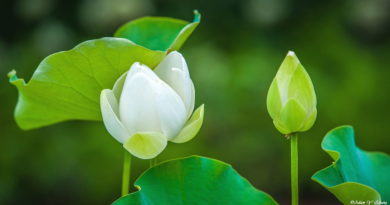Volume Iv –– Saḷāyatanavaggo Book 34 –– Saḷāyatana Saṃyutta Chapter 2 –– Yamaka Vaggo
Sutta Pitaka
Samyutta Nikāya
Volume IV –– Saḷāyatanavaggo
Book 34 –– Saḷāyatana Saṃyutta
Chapter 2 –– Yamaka Vaggo
34. 2. 1.
(13) Sambodhena 1 –– With Enlightenment
1. I heard thus. At one time the Blessed One lived in the monastery offered by Anāthapiṇḍika in Jeta’s grove in Sāvatthi. The Blessed One addressed the monks from there.
2. “Monks, when I was seeking enlightenment it occurred to me what is the satisfaction of the eye, the danger of the eye and the escape from the eye?
“What is the satisfaction of the ear, the danger of the ear, and the escape from the ear?
“What is the satisfaction of the nose, the danger of the nose and the escape from the nose?
“What is the satisfaction of the tongue, the danger of the tongue and the escape from the tongue?
“What is the satisfaction of the body, the danger of the body, and the escape from the body?
“What is the satisfaction of the mind, the danger of the mind and the escape from the mind?
3––5. “Monks, it occurred to me thus. Whatever pleasantness and pleasure arises on account of the eye is its satisfaction. The eye is impermanent, unpleasant and subject to change is the danger of the eye. The taming of interest and greed for the eye and dispelling interest and greed for the eye is the escape from the eye. Repeat for the ear and nose.
6––7. “Monks, whatever pleasantness and pleasure arises on account of the tongue is its satisfaction. The tongue is impermanent, unpleasant and subject to change, is the danger of the tongue. Taming of interest and greed for the tongue and dispelling interest and greed for the tongue is the escape from the tongue. Repeat for the body.
8. “Whatever pleasantness and pleasure arises on account of the mind is its satisfaction. The mind is impermanent, unpleasant and subject to change, is the danger of the mind. Taming interest and greed for the mind and dispelling interest and greed for the mind is the escape from the mind.
9. “Monks, until I realized the satisfaction as the satisfaction, the danger as the danger and the escape as the escape, of these six personal spheres, I did not acknowledge my rightful, noble enlightenment to the world together with the gods Maras, Brahmas and the Community of recluses and brahmins.
10. “Monks, when I realized the satisfaction as the satisfaction, the danger as the danger and the escape as the escape, of these six personal spheres, I declared my rightful, noble enlightenment to the world together with the gods Maras, Brahmas and the Community of recluses and brahmins. .
11. “Then knowledge and insight arose to me, the release of my mind became steadfast. This is my last birth. I will not be born again.”
34. 2. 2.
(14) Sambodhena 2 –– With Enlightenment 2
1. I heard thus. At one time the Blessed One lived in the monastery offered by Anāthapiṇḍika in Jeta’s grove in Sāvatthi. The Blessed One addressed the monks from there.
2. “Monks, when I was seeking enlightenment it occurred to me what is the satisfaction of forms, their danger and the escape from forms?
“What is the satisfaction of sounds, their danger and the escape from sounds?
“What is the satisfaction of scents, their danger and the escape from scents?
“What is the satisfaction of tastes, their danger and the escape from tastes?
“What is the satisfaction of bodily contacts, their danger and the escape from bodily contacts?
“What is the satisfaction of ideas, their danger and the escape from ideas?
3––5. “Monks, it occurred to me, whatever pleasantness and pleasure arises on account of forms is its satisfaction. That forms are impermanent, unpleasant and subject to change, is the danger of forms. The taming of interest and greed for forms and dispelling interest and greed for them is the escape from forms. Repeat for sounds and scents.
6––7. “Monks, whatever pleasantness and pleasure arises on account of tastes is its satisfaction, tastes are impermanent, unpleasant and subject to change, is the danger of tastes. Taming interest and greed for tastes and dispelling interest and greed for tastes is the escape from them, whatever pleasantness and pleasure re bodily. contacts re
8. “Whatever pleasantness and pleasure arises on account of ideas is its satisfaction. Ideas are impermanent, unpleasant and subject to change, is the danger of ideas. Taming interest and greed for ideas and dispelling interest and greed for them is the escape from ideas.
9. “Monks, until I realized the satisfaction as the satisfaction, the danger as the danger and the escape as escape, of these six external spheres, I did not acknowledge my rightful, noble enlightenment to the world together with the gods Maras, Brahmas and the community of recluses and Brahmins.
10. “Monks, when I realized the satisfaction as the satisfaction, the danger as the danger and the escape as escape, of these six external spheres, I declared my rightful noble enlightenment to the world together with the gods Maras, Brahmas and the Community of recluses and Brahmins.
11. “Then knowledge and insight arose to me the release of my mind became steadfast. This is my last birth I will not be born again.”
34. 2. 3.
(15) Aassādena 1 –– Satisfaction 1
1. I heard thus. At one time the Blessed One lived in the monastery offered by Anāthapiṇḍika in Jeta’s grove in Sāvatthi. The Blessed One addressed the monks from there.
2. “Monks, I wandered searching the satisfaction of the eye and wisely realized its satisfaction, I wandered searching the dangers of the eye and wisely realized its danger. Monks, I wandered searching the escape from the eye and wisely realized its escape.
3––4. “Monks, I wandered searching the satisfaction of the ear and wisely realized its satisfaction. Monks, I wandered searching the dangers of the ear and wisely realized its dangers. Monks, I wandered searching the escape from the ear and wisely realized the escape. Repeat for the nose.
5––6. “Monks, I wandered searching the satisfaction of the tongue and wisely realized its satisfaction. Monks, I wandered searching the dangers of the tongue and wisely realized its dangers. ṃonks, I wandered searching the escape from the tongue and wisely realized its escape. Repeat for the body.
7. “Monks, I wandered searching the satisfaction of the mind and wisely realized its satisfaction. Monks, I wandered searching the dangers of the mind and wisely realized its dangers. Monks, I wandered searching the escape from the mind and wisely realized the escape.
8. “Monks, until I realized the satisfaction as the satisfaction, the danger as the danger and the escape as escape, of these six personal spheres, I did not acknowledge my rightful, noble enlightenment to the world together with the gods Maras, Brahmas and the community of recluses and Brahmins.
9. “Monks, when I realized the satisfaction as the satisfaction, the danger as the danger and the escape as escape, of these six personal spheres I announced my rightful, noble enlightenment to the world together with the gods Maras, Brahmas and the Community of recluses and Brahmins.
10. “Then knowledge and insight arose in me, the release of my mind became steadfast. This is my last birth. I will not be born again.”
34. 2. 4.
(16) Aassādena 2 –– With the Satisfaction 2
1. I heard thus. At one time the Blessed One lived in the monastery offered by Anāthapiṇḍika in Jeta’s grove in Sāvatthi. The Blessed One addressed the monks from there.
2. “Monks, I wandered searching the satisfaction of forms and wisely realized that satisfaction Monks, I wandered searching the danger of forms and wisely realized it. Monks, I wandered searching the escape from forms and wisely realized it.
3––4. “Monks, I wandered searching the satisfaction of sounds and wisely realized it. Monks, I wandered searching the danger of sounds and wisely realized it. Monks, I wandered searching the escape from sounds and wisely realized it. Repeat for scents.
5––6. “Monks, I wandered searching the satisfaction of tastes and wisely realized it. Monks, I wandered searching the danger of tastes and wisely realized them. Monks, I wandered searching the escape from tastes and wisely realized it. Repeat for bodily touches.
7. “Monks, I wandered searching the satisfaction of ideas and wisely realized it. Monks, I wandered searching the danger of ideas and wisely realized it. Monks, I wandered searching the escape from ideas and wisely realized it.
8. “Monks, until I realized the satisfaction as the satisfaction, the danger as the danger and the escape as escape, of these six external spheres, I did not acknowledge my rightful, noble enlightenment to the world together with its gods Maras, Brahmas and the Community of recluses and Brahmins.
9. “Monks, when I realized the satisfaction as the satisfaction, the danger as the danger and the escape as escape, of these six external spheres I announced my rightful noble enlightenment to the world together with the gods Maras, Brahmas and the Community of recluses and Brahmins. .
11. “Then knowledge and insight arose in me, the release of my mind became steadfast. This is my last birth. I will not be born again.”
34. 2.. 5.
(17) No Cetena –– If It Was Not
2. “Monks, if there was no satisfaction of the eye, beings would not cling to it. Since there is satisfaction of the eye, beings cling to it. .
3. “Monks, if there was no danger in the eye, beings would not turn from it. Since there is danger from the eye, beings turn from it.
4. “Monks, if there was no escape from the eye, beings would not escape from it. Since there is an escape from the eye, beings escape from it.
5––7. “Monks, if there was no satisfaction of the ear re . 2, 3, 4.
8––10. “Monks, if there was no satisfaction of the nose re 2, 3, 4.
11. “Monks, if there was no satisfaction of the tongue beings would not cling to it. Since there is satisfaction of the tongue, beings cling to it. .
12. “Monks, if there was no danger of the tongue, beings would not turn from it. Since there is danger from the tongue, beings turn from it.
13. “Monks, if there was no escape from the tongue, beings would not escape from it. Since there is an escape from the tongue, beings escape from it.
14––16. “Monks, if there was no satisfaction of the body re 2, 3, 4.
17. “Monks, if thee was no satisfaction from the mind beings would not cling to it. Since there is satisfaction of the mind, beings cling to it. .
18. “Monks, if there was no danger from the mind, beings would not turn from it. Since there is danger from the mind beings turn from it.
19. “Monks, if there was no escape from the mind, beings would not escape from it. Since there is an escape from the mind, beings escape from it.
20. “Monks, until beings realized the satisfaction as the satisfaction, the danger as the danger and the escape as the escape from these six personal spheres, they did not have a mind that is given up, unyoked and unrestrictedly released from the world together with the gods Maras, Brahmas and the Community of recluses and Brahmins.
21. “Monks, when beings realized the satisfaction as the satisfaction, the danger as the danger and the escape as the escape, from these six personal spheres they lived with a mind that has given up, is unyoked and unrestrictedly released from gods Maras, Brahmas and the Community of recluses and Brahmins.”
34. 2.. 6.
(18) No Cetena 2 –– If It Was Not 2
1. I heard thus. At one time the Blessed One lived in the monastery offered by Anāthapiṇḍika in Jeta’s grove in Sāvatthi. The Blessed One addressed the monks from there.
2. “Monks, if there was no satisfaction in forms, beings would not cling to them. Since there is satisfaction in forms, beings cling to them. .
3. “Monks, if there was no danger in forms, beings would not turn from them. Since there is danger in forms, beings turn from them.
4. “Monks, if there was no escape from forms, beings would not escape from them. Since there is an escape from forms, beings escape from them.
5––7. “Monks, if there was no satisfaction in sounds re . 2, 3, 4.
8––10. “Monks, if it was no satisfaction in scents re 2, 3, 4.
11. “Monks, if there was no satisfaction in tastes beings would not cling to them. Since there is satisfaction in tastes, beings cling to them. .
12. “Monks, if there was no danger in tastes, beings would not turn from them. Since there is danger in tastes beings turn from them.
13. “Monks, if there was no escape from tastes beings would not escape from them. Since there is the escape from tastes, beings escape from them.
14––16. “Monks, if there was no satisfaction in bodily contacts re 2, 3, 4.
17. “Monks, if there was no satisfaction in ideas beings would not cling to them. Since there is satisfaction in ideas, beings cling to them.
18. “Monks, if there was no danger in ideas, beings would not turn from them. Since there is danger in ideas, beings turn from them.
19. “Monks, if there was no escape from ideas, beings would not escape from ideas. Since there is the escape from ideas, beings escape from them.
20. “Monks, until beings realized the satisfaction as the satisfaction, the danger as the danger and the escape as the escape from these six external spheres, they did not have a mind that has given up, unyoked and is unrestrictedly released from the world together with the gods Maras, Brahmas and the Community of recluses and Brahmins.
21. “Monks, when beings realized the satisfaction as the satisfaction, the danger as the danger and the escape as the escape, of these six external spheres they lived with a mind that has given up, is unyoked and unrestrictedly released from gods Maras, Brahmas and the Community of recluses and Brahmins.”
34. 2. 7.
(19) Abhinandena 1 –– Delight 1
1. I heard thus. At one time the Blessed One lived in the monastery offered by Anāthapiṇḍika in Jeta’s grove in Sāvatthi. The Blessed One addressed the monks from there.
2. “Monks, he that delights in the eye, delights in unpleasantness. Monks, if someone delights in unpleasantness, I say he is not released from it.
“Monks, he that delights in the ear, nose, tongue, body and the mind delights in unpleasantness.
“Monks, if someone delights in unpleasantness, I say he is not released from unpleasantness.
3. “Monks, he that does not delight in the eye, does not delight in unpleasantness. Monks, if someone does not delight in unpleasantness, I say he is released from unpleasantness. Monks, he that does not delight in the ear, nose, tongue, body and the mind does not delight in unpleasantness. Monks, if someone does not delight in unpleasantness, I say he is released from unpleasantness.”
34. 2. 8.
(20) Abhinandena 2 –– Delight 2
1. I heard thus. At one time the Blessed One lived in the monastery offered by Anāthapiṇḍika in Jeta’s grove in Sāvatthi. The Blessed One addressed the monks from there.
2. “Monks, he that delights in forms delights in unpleasantness. Monks, if someone delights in unpleasantness, I say he is not released from unpleasantness.
“Monks, he that delights in sounds, scents, tastes, bodily contacts and ideas delights in unpleasantness.
“Monks, if someone delights in unpleasantness, I say he is not released from unpleasantness.
3. “Monks, he that does not delight in forms, does not delight in unpleasantness. Monks, if someone does not delight in unpleasantness, I say he is released from unpleasantness. Monks, he that does not delight in sounds, scents, tastes, bodily contacts and ideas does not delight in unpleasantness. Monks, if someone does not delight in unpleasantness, I say he is released from unpleasantness.”
34. 2. 9.
(21) Uppādena 1 –– With the Arising
1. I heard thus. At one time the Blessed One lived in the monastery offered by Anāthapiṇḍika in Jeta’s grove in Sāvatthi. The Blessed One addressed the monks from there.
2. “Monks, the arising, maintaining and birth, of the eye is the arising of unpleasantness, maintaining ailments and the appearance of decay and death.
3––4. “Monks, the arising, maintaining and birth of the ear, re of the nose is the arising of unpleasantness, maintaining ailments and the appearance of decay and death.
5––6. “Monks, the arising, maintaining and birth of the tongue, re of the body is the arising of unpleasantness, maintaining ailments and the appearance of decay and death.
7. “Monks, the arising, maintaining and birth of the mind is the arising of unpleasantness, maintaining ailments and the appearance of decay and death.
8. “Monks, whosever eye has ceased, appeased and faded, has ceased unpleasantness has appeased ailments and have overcome decay and death.
9––13. “Monks, whosever ear, nose, tongue, body, and mind have ceased, appeased and faded has ceased unpleasantness, appeased ailments and overcome decay and death.”
34. 2. 10.
(22) Uppadena 2 –– With the Arising 2
1. I heard thus. At one time the Blessed One lived in the monastery offered by Anāthapiṇḍika in Jeta’s grove in Sāvatthi. The Blessed One addressed the monks from there.
2. “Monks, the arising, maintaining and birth of forms is the arising of unpleasantness, maintaining ailments and the appearance of decay and death.
3––4. “Monks, the arising, maintaining and birth of sounds, re scents is the arising of unpleasantness, maintaining ailments and the appearance of decay and death.
5––6. “Monks, the arising, maintaining and birth of tastes, re of bodily touches is the arising of unpleasantness, maintaining ailments and the appearance of decay and death.
7. “Monks, the arising, maintaining and birth of ideas is the arising of unpleasantness, maintaining ailments and the appearance of decay and death.
8. “Monks, to whoever forms have ceased, appeased and faded, unpleasantness has ceased ailments have appeased and decay and death have faded.
9––13. “Monks, to whoever sounds, scents, tastes, bodily touches and ideas have ceased, appeased and faded, to him unpleasantness has ceased, ailments have appeased and decay and death have faded.”






